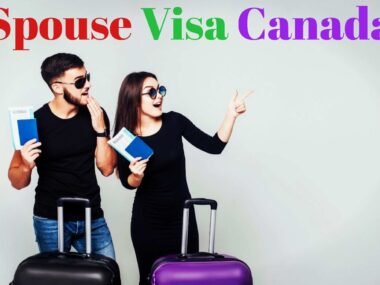The Canada Marriage Visa allows Canadian citizens and permanent residents to sponsor their foreign spouses for permanent residence in Canada. The primary purpose of this visa is to enable couples to live together in Canada, ensuring that the relationship is genuine and not entered into solely for immigration purposes.
Benefits of the Canada Marriage Visa
RIGHTS AND PRIVILEGES
With a marriage visa, the sponsored spouse can live, work, and study anywhere in Canada, enjoying most of the same rights as Canadian citizens.
PATHWAY TO PERMANENT RESIDENCY
One of the significant advantages of the marriage visa is that it provides a direct pathway to permanent residency, which can eventually lead to Canadian citizenship.
To be eligible for a marriage visa, you must:* Be legally married to a Canadian citizen or permanent resident
* Have a genuine relationship with your spouse
* Intend to live in Canada together
* Meet the minimum income requirements
Documents Required
The application for a marriage visa requires the submission of various documents, including:
* Marriage certificate
* Passports and proof of citizenship or permanent residency
* Proof of income
* Police clearance certificates
* Medical examination.
Collect all necessary documents, including proof of identity, relationship, and financial stability.STEP 2: COMPLETE APPLICATION FORMS
Fill out the required forms accurately and completely. Any errors or omissions can lead to delays or rejection.
STEP 3: SUBMIT THE APPLICATION
Submit your application package to Immigration, Refugees, and Citizenship Canada (IRCC) either online or by mail.
Steps Involved
The process for obtaining a marriage visa can be divided into the following steps:
1. Marriage
The first step is to legally marry a Canadian citizen or permanent resident. The marriage must be recognized by both Canada and your home country.
2. Sponsorship Application.
Your spouse must apply to sponsor you for permanent residency in Canada. They will need to submit the necessary documents and pay the application fee.
3. Application.
Once your spouse’s sponsorship application is approved, you can apply for a marriage visa. You will need to submit your documents and pay the application fee.
4. Background Check
The Canadian government will conduct a background check on you to ensure that you are not inadmissible to Canada.
5. Interview and Medical Exam
You may be required to attend an interview and undergo a medical examination as part of the application process.
6. Decision
Once the background check and other requirements have been met, an immigration officer will decide on your application. If approved, you will be issued a marriage visa.
Income Requirements
The minimum income requirements for sponsoring a spouse vary depending on the number of dependents. The following are the income thresholds for 2023:
* One dependent: $36,058
* Two dependents: $42,781
* Three dependents: $49,504
Timeline
The processing time for a marriage visa can vary depending on several factors, including the workload of the Immigration, Refugees and Citizenship Canada (IRCC) and the country of origin of the applicant. The average processing time is around 12-18 months.
Organizing Your Documents
Create a comprehensive checklist of all required documents to ensure nothing is missed.DOUBLE-CHECKING INFORMATION
Review all forms and documents for accuracy before submission to avoid delays or rejections.
Consider hiring an immigration consultant to guide you through the process and ensure your application is complete.LEGAL ADVISORS
Legal advisors can provide additional support, especially in complex cases or if facing rejections.
Conditional Permanent Residency: In some cases, you may be granted conditional permanent residency if your marriage is less than two years old.
Rejection: If your application is rejected, you can appeal the decision or re-apply.


